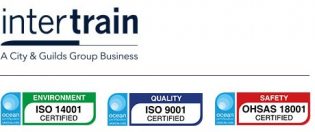As we enter a new financial year, businesses of all shapes and sizes are presented with an opportunity to reflect, reset, and renew. This fresh start provides a valuable window to reassess financial practices, revisit strategic objectives, and explore new ways to innovate and grow. Whether you’re launching a start-up, leading a growing enterprise, or steering an established organisation through change, strong financial leadership is essential. Innovation is not solely about creativity or big ideas—it’s also about ensuring that the financial foundations are solid enough to support and sustain those ideas.
In this context, financial understanding becomes more than just a back-office function—it becomes a strategic asset. Below, we outline the core financial areas that business leaders should consider when driving innovation and navigating change in a new financial year.
Key Financial Considerations for Business Innovation
While each organisation will approach innovation differently—shaped by its goals, market, and leadership style—there are several universal financial principles that can underpin successful change:
- Cash Flow and Management
Maintaining healthy cash flow is fundamental to any business initiative. Leaders must not only track incoming and outgoing funds but also anticipate future cash needs. A working knowledge of financial terminology—such as liquidity, working capital, and operational cash flow—can help leaders communicate effectively with finance teams and make better-informed decisions. - Planning and Budgeting
Innovation requires investment, which in turn demands meticulous planning. Budgets should be forward-looking and flexible enough to accommodate risk and change. Business leaders need to interpret financial data to understand where resources can be most effectively allocated and how changes in spending might impact overall performance. Budgeting isn’t just about limiting costs—it’s about strategically guiding the use of funds to support innovation. - Impact on Profitability
Every innovative strategy has financial implications. Leaders should regularly assess how new initiatives may affect profitability, whether through increased revenue, improved efficiency, or higher operating costs. Understanding gross and net profit margins, break-even analysis, and cost structures enables leaders to evaluate whether their ideas are sustainable in the long term.
Essential Accounting Knowledge
A sound grasp of fundamental accounting concepts ensures that leaders can read and interpret key financial documents, enabling more confident and credible decision-making. Familiarity with the following areas is crucial:
- Balance Sheet
This statement provides a snapshot of a company’s financial position at a specific point in time, listing assets, liabilities, and equity. Leaders should understand how to read a balance sheet to gauge business health and solvency. - Profit & Loss Accounts (P&L)
Also known as an income statement, the P&L summarises revenue and expenses over a period, showing whether the business is operating at a profit or loss. Monitoring this document helps assess operational performance and supports future forecasting. - Key Accounting Terms
Concepts such as:- Going concern – the assumption that the business will continue operating for the foreseeable future.
- Accruals – recognising income and expenses when they are incurred, not when cash is exchanged.
- Prudence – the practice of not overstating income or understating expenses.
- Consistency – ensuring accounting methods remain the same across periods.
- Depreciation – allocating the cost of tangible assets over their useful life.
Understanding these terms allows leaders to ask the right questions, spot potential issues early, and make decisions based on a true picture of the business.
Advanced Financial Leadership Skills
Beyond basic accounting, effective leaders should develop a deeper understanding of financial strategy and analysis to drive performance across departments and projects:
- Working Capital and Cash Flow
Leaders should monitor the movement of funds through the business, ensuring there’s enough liquidity to meet short-term obligations. This includes understanding current ratios, quick ratios, and how to manage receivables, payables, and inventory effectively. - Budgetary Management
Sound budgeting involves more than creating a plan—it requires ongoing review, flexibility, and responsiveness. Leaders should be familiar with different budgeting methods (such as zero-based or incremental budgeting) and understand the full budget cycle, from planning to monitoring and revision. - Financial Analysis
Tools like ratio analysis (e.g. return on capital employed, asset turnover, and gross margin ratios) provide valuable insight into business efficiency and profitability. Understanding accounting policies and how company valuations are determined can also support more strategic investment and growth decisions.
Maximising Efficiency and Strategic Success
Financial acumen is not reserved for accountants. In today’s competitive environment, it’s a critical leadership skill—one that empowers decision-making, drives performance, and ensures the long-term viability of innovation.
Whether you’re a founder, a departmental manager, or a managing director, developing a robust understanding of financial principles is vital for enhancing operational efficiency and aligning strategy with measurable outcomes. At Alternative Partnership Business and Training Consultants, we help leaders strengthen these capabilities through tailored support, including comprehensive training needs analysis. Our goal is to equip you with the tools and confidence needed to lead with clarity and purpose in an increasingly complex financial landscape.
Let this financial year be the one where your organisation doesn’t just strive for innovation, but thrives financially as it does so.
Developing Financial Leaders
As a manager or leader, there’s always something new to learn or a skill you can improve and develop. Organisations need to support managers and leaders in this development, but you also need to invest in yourself.
Getting formal leadership and management training will not only help you build your leadership skills, it will also help you grow in confidence, and increase your chances of career progression.
Alternative Partnership delivers ILM-accredited Leadership and Management training programmes to support you and your teams in gaining formal, nationally recognised qualifications.
Find out more about our current ILM courses here or get in touch to discuss how our services could benefit you.












